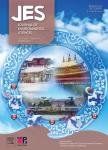Assessing the bioremediation potential of arsenic tolerant bacterial strains in rice rhizosphere interface
Assessing the bioremediation potential of arsenic tolerant bacterial strains in rice rhizosphere interface作者机构:Eco-auditing Group CSIR-National Botanical Research Institute Lucknow 226001 India Department of Biochemistry Banaras Hindu University Varanasi 221001 India
出 版 物:《Journal of Environmental Sciences》 (环境科学学报(英文版))
年 卷 期:2016年第28卷第10期
页 面:112-119页
核心收录:
学科分类:083002[工学-环境工程] 0830[工学-环境科学与工程(可授工学、理学、农学学位)] 07[理学] 08[工学] 09[农学] 0903[农学-农业资源与环境] 0713[理学-生态学]
基 金:Financial support from networking project BSC-0111
主 题:Antioxidative enzymeOryza satiua L.Environmental contaminationMetalsSoil bacteria
摘 要:The arsenic tolerant bacterial strains Staphylococcus arlettae (NBRIEAG-6), Staphylococcus sp. (NBRIEAG-8) and Brevibadllus sp. (NBRIEAG-9) were tested for their roles in enhancing plant growth and induction of stress-related enzymes in rice (Oryza sativa L. cv. NDR-3Bg) plants at two different concentrations, 30 and IS mg/kg of As(V) and As(Ⅲ), respectively. An experiment was conducted to test the effect of these strains on plant growth promotion and arsenic uptake. We found 30%-40% reduction in total As uptake in bacteria-inoculated plants, with increased plant growth parameters compared to non-inoculated plants. Moreover, the bacteria-inoculated plants showed reduced activity of total glutathione (GSH) and glutathione reductase (GR) compared to their respective controls, which suggests the bacteria-mediated reduction of oxidative stress in plants. Thus, these strains were found to be beneficial in terms of the biochemical and physiological status of the plants under arsenic stress conditions. Furthermore, one-way ANOVA and principal component analysis (PCA) on enzymatic and non-enzymatic assays also revealed clear variations. The results support the distinction between control and treatments in both shoots and roots. Therefore, this study demonstrates the potential of rhizobacteria in alleviating arsenic stress in rice plants.



